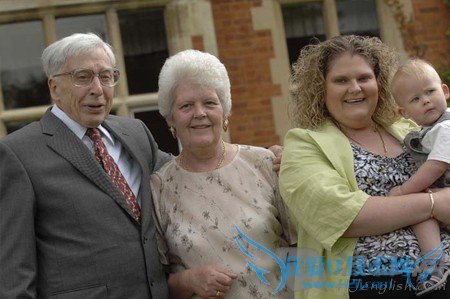��ӭ������52ijӢ��������������С��Ϊ�������Ӣ��֪ʶ�ǣ������Թ�Ӥ��֮�������»��Ȼ�ŵ��������ѧ��ҽѧ��������������ϸ�ķ�����
���Թ�Ӥ��֮�������»��Ȼ�ŵ��������ѧ��ҽѧ��

British physiologist Robert Edwards has won the 2010 Nobel Prize in medicine for the development of in vitro fertilization, a technique that has helped millions of infertile couples to have children.
The Nobel Committee at the Swedish Karolinska Institute, which awards the prize, in its announcement today said that Edwards' contributions "represent a milestone in the development of modern medicine."
Edwards, 85, started working on in vitro fertilization, a procedure in which eggs are fertilized outside the body and implanted in the womb, in the 1950s. He developed the technique together with Patrick Steptoe, who died in 1988.
The first baby born through the groundbreaking procedure was born in 1978 in Britain.
The award for medicine is the first of the annual Nobel prizes to be announced, followed by the prizes for physics on Tuesday, chemistry on Wednesday, literature on Thursday, the Nobel Peace Prize on Friday, and economics on Monday, October 11.
This year's winners will receive about $1.5 million, a diploma, and a gold medal.
The Nobel Prizes were first handed out in 1901.
ŵ����������ίԱ��4������������Ϊ�������Թ�Ӥ��֮������Ӣ����ѧ�Ұ��»����ԡ����Թ��ھ�����Ĺ��ס�Ӯ��2010��ŵ��������ѧ��ҽѧ������������������ϵ�һ���Թ��ܾ����������������ϵ�һ�����Թ�Ӥ����·��˿���ٵ�������
λ�������˹�¸��Ħ������ҽѧԺ��ŵ�������ƣ������Ĺ��״������ִ�ҽѧ��չ����̱�����
�����ijɾ�ʹ���Ʋ���֢��Ϊ���ܣ�����֢��ĥ�Ű���ȫ����10%���Ϸ����ڵ��Ӵ���Ⱥ����
- �����б����������۽������ѱ�����˿���������������վͬ����۵��֤ʵ��������
-
